- Japanese Culture
- Outdoor
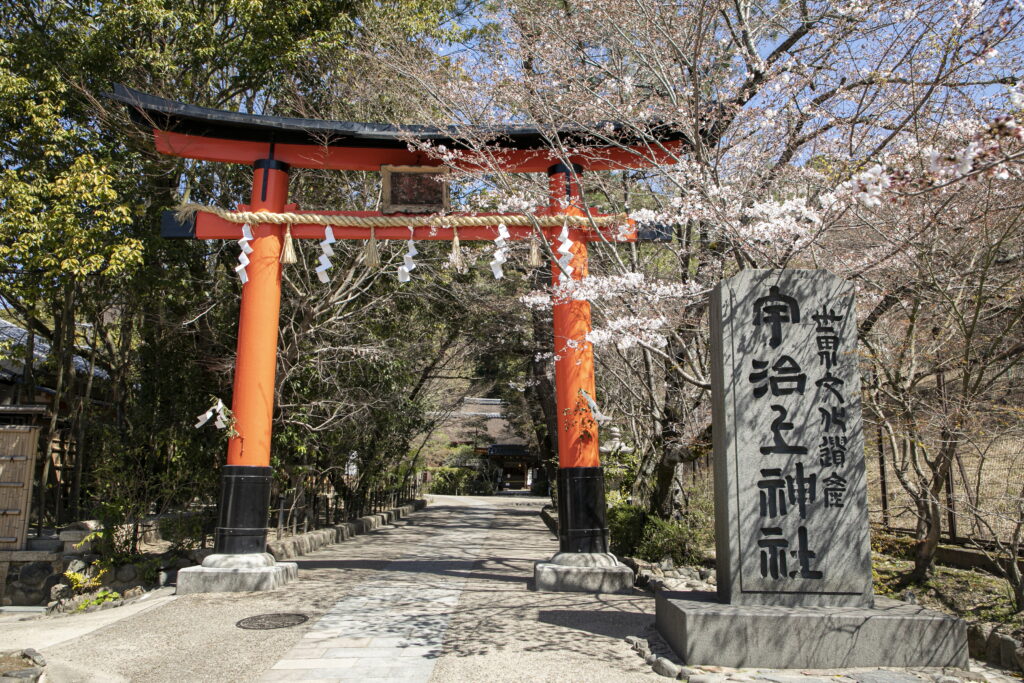
This one-day model course, just about a 15-minute train ride from Kyoto City, takes you to Uji City where you can fully enjoy its rich history and the famous Uji tea. Visit two World Heritage sites, Byodoin Temple and Ujikami Shrine. They are awesome. At Ujicha Kobo (Fukujuen Uji Kobo) and Chazuna (Historical Park of Tea and Uji Land), you can experience the tea culture of Uji, and indulge in tasty sweets and dishes made with tea. It’s the perfect day trip to immerse yourself in Uji’s renowned tea and historical landmarks.
JR Kyoto Station
15 min. by train
10 min. walk
1Byodoin Temple
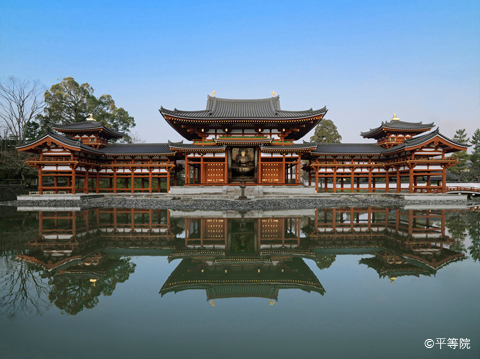
Byodoin Temple, located on the west bank of the Uji River, shows the historical glory of the Fujiwara clan's prosperity. Originally Minamoto no Toru’s villa, it was later acquired by Fujiwara no Michinaga, and his son Yorimichi converted it into the temple in 1052. The Phoenix Hall (Hou-ou-do), which is a National Treasure, appears to float on the Aji-ike Pond. The pond extending in front of the building is a characteristic example of Heian Period (794-1185) gardens. However, the Phoenix Hall and its surrounding garden together represent something far more profound. It is the Heian aristocrats' aspiration to be reborn in Gokuraku Jodo (the Pure Land in Buddhism). The belief that such a beautiful world awaited them held great significance for them. The Phoenix Hall enshrines Amida Buddha (Amida Nyorai). The hall is a familiar sight in Japan, being depicted on the 10 yen coin. At the Byodoin Temple Museum “Hoshokan,” a collection of precious artifacts owned by the temple is on display. It includes valuable National Treasures: a pair of Phoenix, 26 Statues of the Praying Bodhisattva (Buddhist Saint) on Clouds, and 1 Temple Bell. Also, the museum offers restored footage generated through computer graphics utilizing state-of-the-art digital technology.
- Tel
- 0774-21-2861
- Address
- 116 Uji Renge, Uji City, Kyoto
- Access
- About 10 min. on foot from Uji Station (JR Nara Line)
About 10 min. on foot from Uji Station (Keihan Uji Line)
3 min. walk
2Tonoshima Island & Tachibanajima Island on Uji River
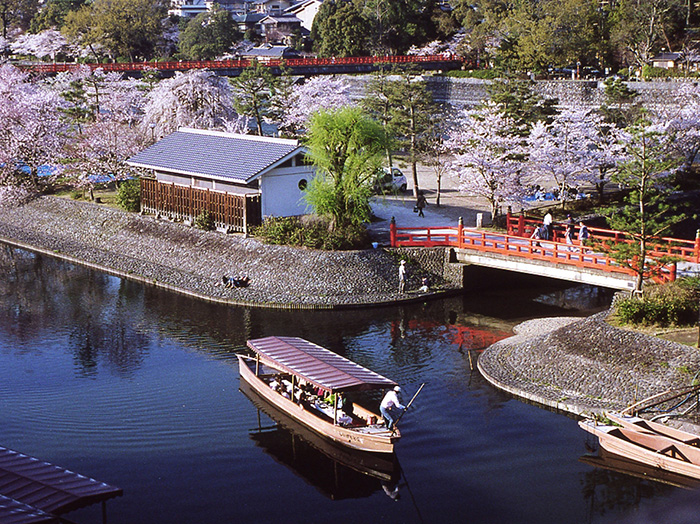
On Uji River, there are Tonoshima Island and Tachibanajima Island. They are collectively called Nakanoshima Island. Nakanoshima Island and Yorimichi Park on the left bank are collectively called Uji Park. Four bridges (Asagiri Bridge, Kisen Bridge, Tachibana Bridge and Nakajima Bridge) connect the two islands and both riverbanks. This area is renowned as a great hanami (cherry-blossom viewing) spot, and in early April, Ujigawa Sakura Festival is held on and around the islands. In the summer, “Cormorant Fishing on the Uji River” is held. (Cormorants are birds. Cormorant masters wearing traditional clothing manipulate them to catch fish.) This is why you can see a cormorant shed on Tonoshima Island. In early October, Uji Tea Festival is held in this area, too. On Tonoshima Island, there stands a beautiful 13-story pagoda that is around 15 meters tall. It was built by Eison in 1286, praying for the souls of fish. Eison was a Buddhist monk of Saidaiji Temple in Nara. In 1756, a great flood caused the pagoda to collapse and become buried. Around the end of the Meiji Period (1868-1912), A large part of it was excavated, and the entire pagoda was rebuilt.
- Address
- Uji, Uji City, Kyoto
- Access
- About 10 min. on foot from Uji Station (Keihan Uji Line)
About 10 min. on foot from Uji Station (JR Nara Line)
2 min. walk
3Hands-on Activities at Ujicha Kobo of Fukujuen Uji Kobo

Fukujuen Uji Kobo offers comprehensive tea experiences on the both banks of Uji River, with Ujicha Kobo on the right and Ujicha Tei on the left. At Ujicha Kobo, there are various hands-on activities, such as making tea through a process including rolling, loosening, and massaging tea leaves. You can also dry tea leaves by massaging them on a ceramic plate, making matcha green tea by grinding the tea leaves with a traditional stone mill, creating Asahiyaki pottery or painting it. Moreover, you can learn the etiquette of the tea ceremony of matcha or sencha (Japanese green tea that you brew to enjoy) in a tranquil tea-ceremony room. At the Museum or the Tea Garden, you can visually experience the beauty of the culture of Uji tea, too. When you get hungry, visit their Cafeteria. They have various sweets and dishes made with Uji tea. You can brew your tea and drink it, too. After exploring the world of Uji tea through multi-sensory experiences, find gifts for yourself and your loved ones, like high-quality tea, sweets made with tea, teaware, and more. (At the Ujicha Tei, you can enjoy eating, drinking and shopping, too.)
- Tel
- 050-3152-2930
- Address
- 10 Uji Yamada, Uji City, Kyoto
- Access
- About 8 min. on foot from Uji Station (Keihan Uji Line)
About 15 min. on foot from Uji Station (JR Nara Line)
1 min. walk
4Uji-Shrine
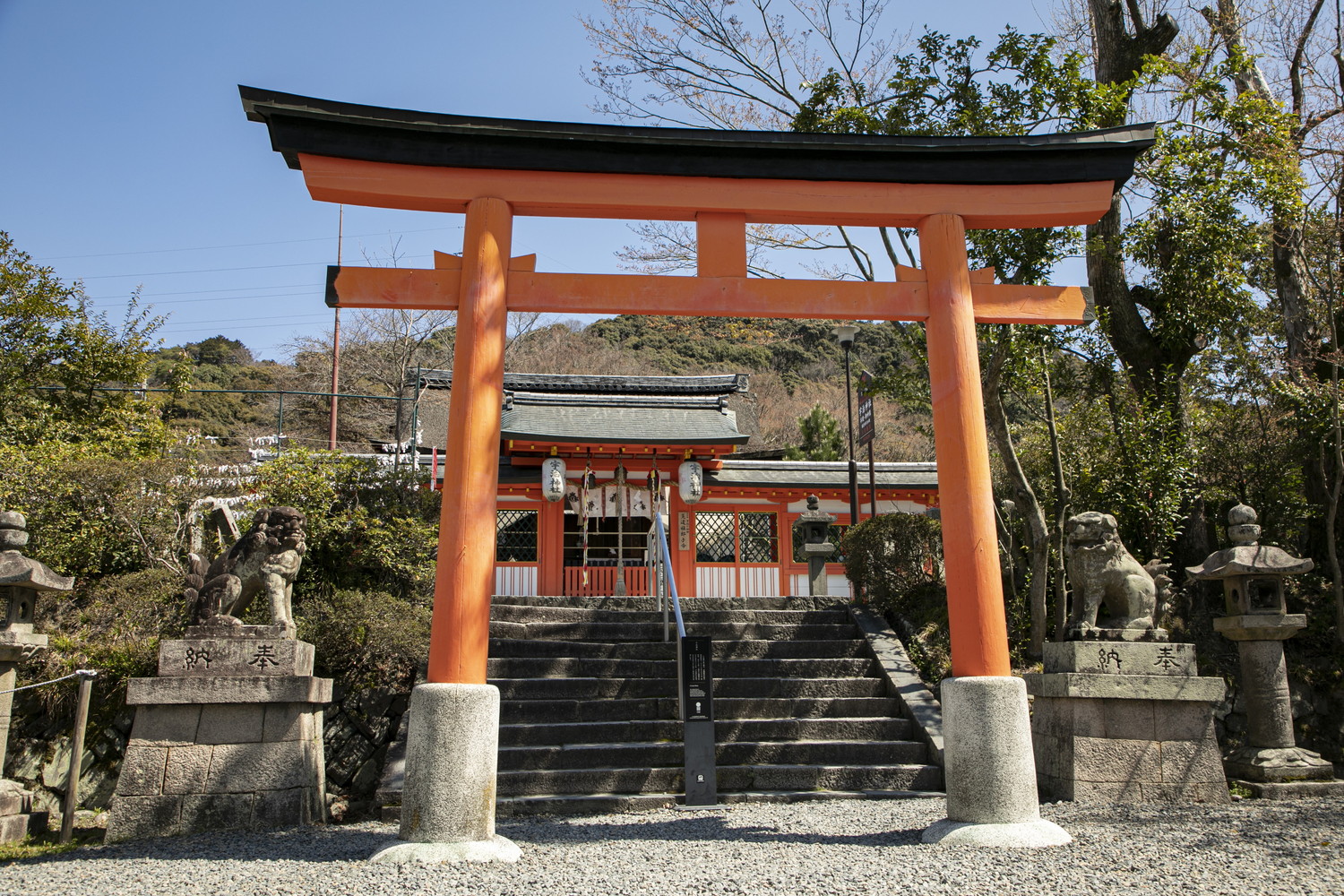
Uji-Shrine was established in 313 on the right bank of the Uji River. The current main hall (an Important Cultural Property) was built in the Kamakura Period (1185-1333). Built in the architectural style called Sangensha Nagare-zukuri, it has a large roof and a facade with four pillars (creating three spaces). The shrine also preserves other various cultural properties, such as the oldest existing wooden komainu (a pair of guardian creatures called lion-dogs in colloquial English) and a valuable mask used in nō (a classical Japanese performing art). The enshrined deity is Uji no Wakiiratsuko, believed to be a deity of academic achievement and success in entrance exams. This area was once home to Kirihara-Higeta-no-Miya, the detached palace of Emperor Ojin and the residence of his son, Uji no Wakiiratsuko. Legend has it that when Uji no Wakiiratsuko lost his way, a rabbit appeared and guided him, looking back repeatedly to ensure he was following. According to one theory, this is the origin of the place name Uji (rabbit path). At Uji-Shrine, Mikaeri Usagi (looking-back rabbit), a messenger of a deity, guiding people to the right direction, is worshipped. There is a temizuya (place to purify hands with water) with a rabbit motif, cute rabbit omikuji (small items containing fortune-telling slips) and ema (small plaques to write wishes), and so on.
- Tel
- 0774-21-3041
- Address
- 1 Uji Yamada, Uji City, Kyoto
- Access
- About 7 min. on foot from Uji Station (Keihan Uji Line)
About 15 min. on foot from Uji Station (JR Nara Line)
1 min. walk
5Ujikami Shrine
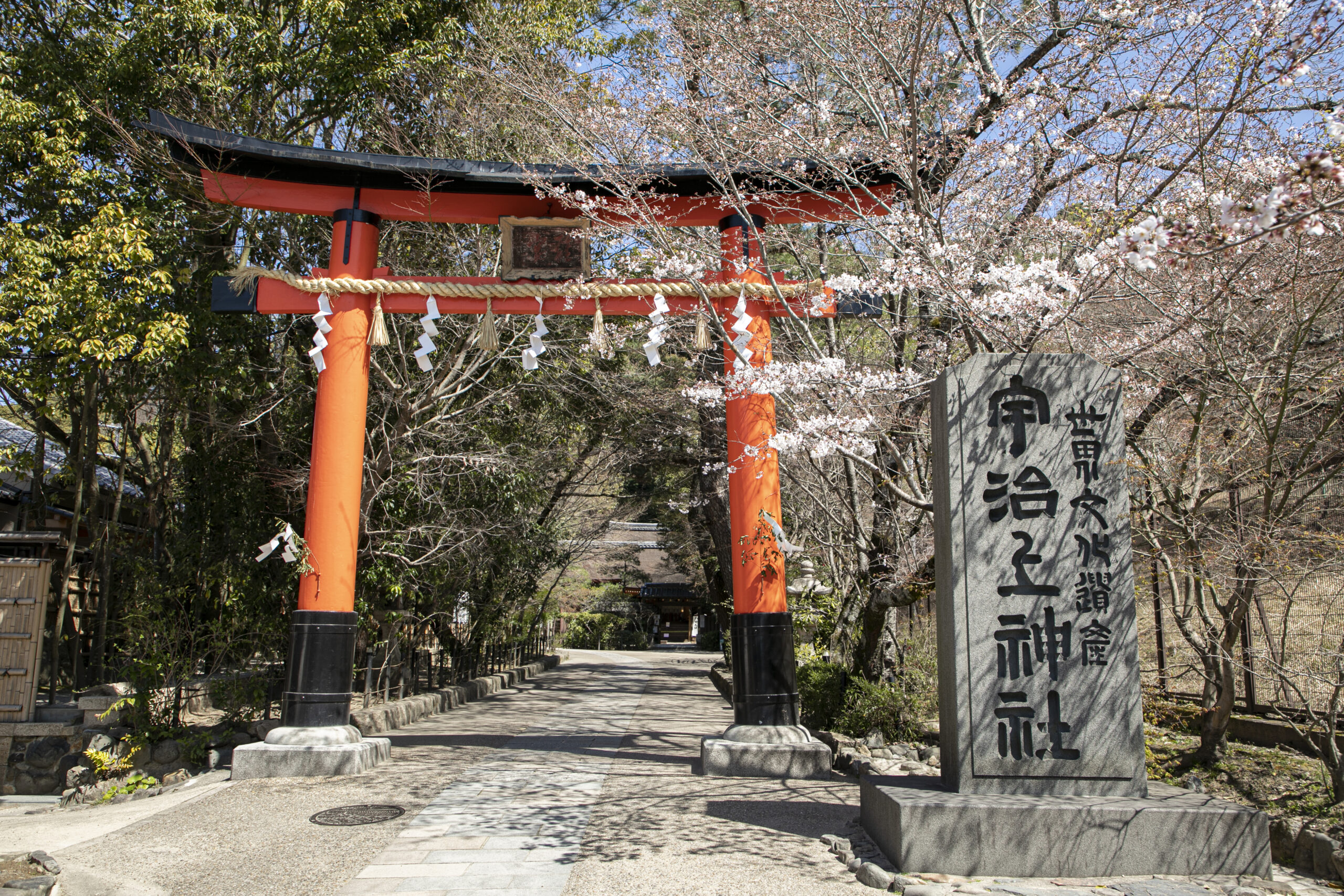
Ujikami Shrine is one of the World Heritage sites. It was once a single shrine together with Uji-Shrine, as a guardian shrine for Byodoin Temple. The main hall (a National Treasure), built in the late Heian Period (794-1185), is the oldest existing shrine building in Japan. Built in the Nagare-zukuri style characterized by its long, flowing roof, it houses three structures to enshrine deities, which are two larger shrines flanking a smaller one in the center. The worship hall (a National Treasure) is part of a building constructed in the Shinden-zukuri, the representative architectural style of aristocratic residences in the Heian Period. The enshrined deities are Emperor Ojin, Uji no Wakiiratsuko, and Emperor Nintoku. Ujikami Shrine offers charming rabbit omamori (Japanese amulets), omikuji (small items containing fortune-telling slips), and so on.
- Tel
- 0774-21-4634
- Address
- 59 Uji Yamada, Uji City, Kyoto
- Access
- Train:
About 10 min. on foot from Uji Station (Keihan Uji Line)
About 20 min. on foot from Uji Station (JR Nara Line)
10 min. walk
6Historical Park of Tea and Uji Land (Chazuna)
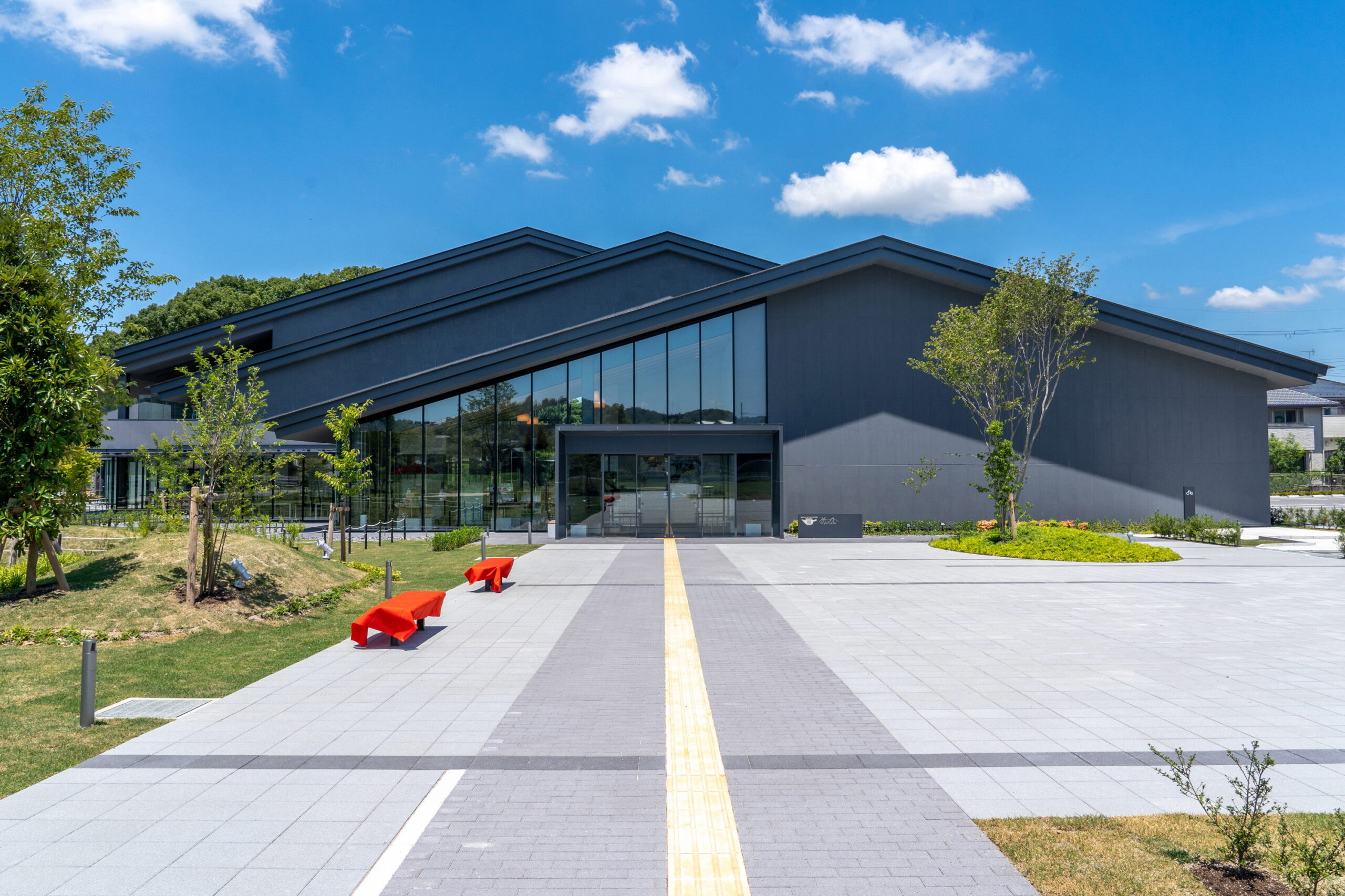
If you want to learn about Uji tea and the history and culture of Uji, this is the perfect place to start. With the rich history of Uji, the park is located among several historical sites, including the Uji-bashi Bridge and the Ujinowakiiratsuko Gobo tomb, housing the historic site Ujigawataikotsutsumiato (remains of the dike of Uji River that were constructed by Toyotomi Hideyoshi). At the Communication Center of Tea and Uji Land called Chazuna, you can enjoy the museum and various experience programs related to Uji and Uji tea. Chazuna also has a museum shop, restaurant, observation terrace, and so on. The modernized Uji Meishozue (a compilation of the Edo-period pictures depicting the sights of Uji) on a large 4K HD screen is a must-see. The experience programs include matcha making from leaf-grinding, tea caddy making, tea leaf picking, and more. Through these activities, you can connect with the local people, history, and culture of Uji. Chazuna offers various sightseeing information, too. This information and your own experiences will make your exploration of Uji even more interesting.
- Tel
- 0774-24-2700
- Address
- 203-1 Todo Maruyama, Uji City, Kyoto
- Access
- About 4 min. on foot from Uji Station (Keihan Uji Line)
About 12 min. on foot from Uji Station (JR Nara Line)
4 min. walk
Uji Station (Keihan Uji Line)
